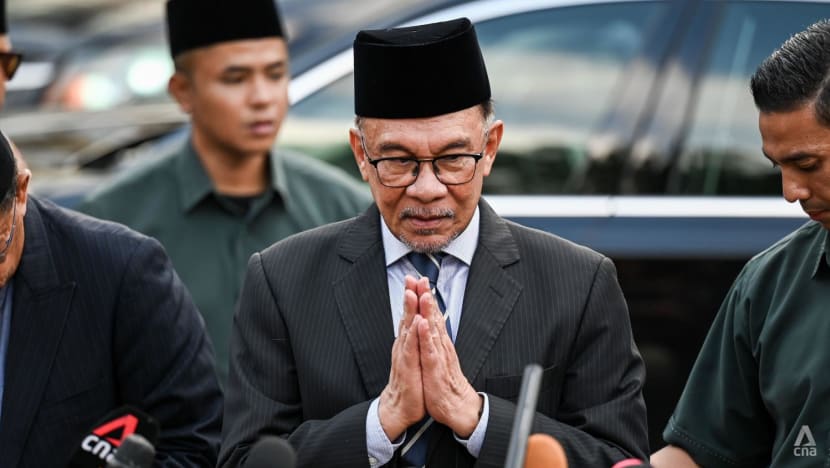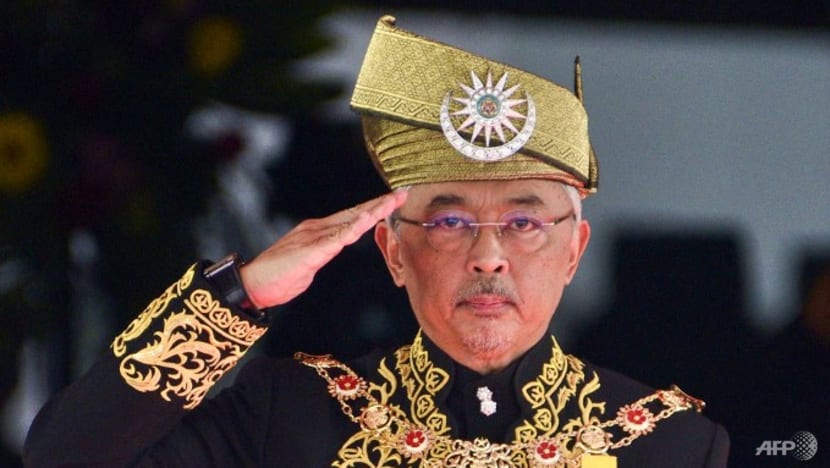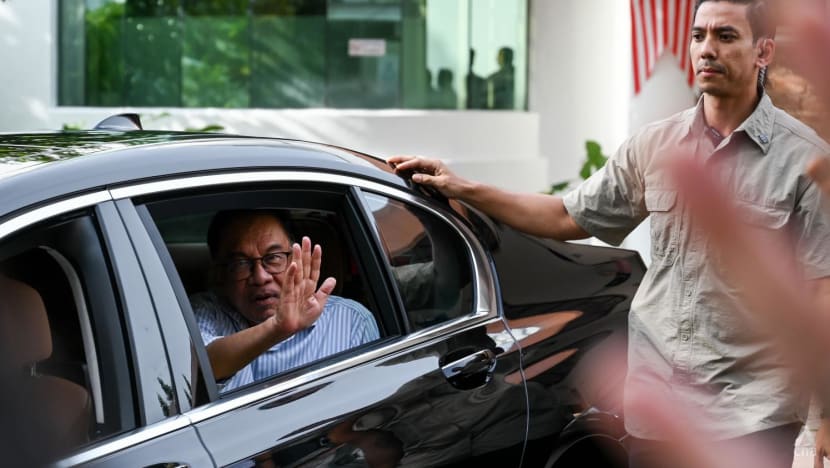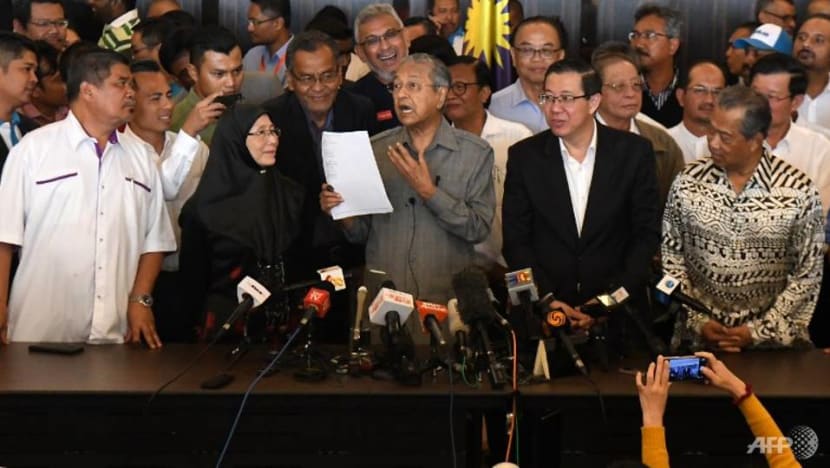Choice of Anwar as next Malaysian PM will not satisfy everyone due to lack of actual simple majority: Expert
Safeguards have to be in place to prevent Anwar's government from being toppled, which would leave the country in yet another political crisis.

SINGAPORE: The decision by Malaysia’s king to appoint Pakatan Harapan (PH) leader Anwar Ibrahim as the country’s 10th prime minister will not satisfy everyone, as he is not taking over with an actual simple majority, said a political observer.
This would leave him vulnerable to attacks from political opposition, and safeguards will have to be in place to ensure that his government does not get toppled, leading to yet another political crisis in Malaysia, said Dr Lau Zhe Wei, assistant professor at International Islamic University Malaysia’s political science department.
The decision was announced on Thursday (Nov 24) after a special meeting was convened by the king with fellow rulers, to discuss the political impasse that ensued after Malaysia’s first ever hung parliament emerged from the Nov 19 general election.
IMPORTANCE OF MONARCHY
The role of the monarchy was especially important in resolving this political stalemate, said Dr Lau, five days after the 15th General Election saw no clear winner.
“Actually no matter who is appointed as the prime minister, we cannot expect full satisfaction from the ground,” Dr Lau told CNA’s Asia Now.
He said that while Perikatan Nasional (PN) supporters are unhappy with the choice of Mr Anwar, if PN leader Muhyiddin Yassin or Tan Sri Abdul Hadi Awang, president of PN component party Parti Islam Se-Malaysia (PAS), was appointed, the converse would be the same.
He noted that the monarchy has a key role in calming down the situation, and convincing all those involved to work together for the good of the country.

“Basically if you follow the Constitution, there's no need for him (the king) to consult the Malay rulers council at all. But instead of making a solo decision, he called on the meeting with other Malay rulers and they came up with a consensus decision,” noted Dr Lau.
“So at least this can persuade the people that it is no longer a decision by the politicians or the political parties.”
MOVING FORWARD
Dr Lau said the outcome of a hung parliament was something unavoidable given the events of recent years, and that Malaysians have to get used to a concept whereby no single coalition can cross the simple majority threshold on its own anymore.
What was unexpected, he noted, was that the coalitions which emerged as frontrunners from the Nov 19 polls, did not agree to work together to form the next government.
He noted that although Mr Anwar is now the prime minister, it remains to be seen how the bloc of 112 votes - the simple majority needed to form the government - will be achieved.
Another issue that remains to be seen is who will end up forming the Cabinet and assume the various ministerial positions, said Dr Lau.

“To be honest, we couldn’t expect much from now onwards yet,” he said. “The reason is very simple. When you don't have enough numbers, what can you expect?”
He said that Mr Anwar’s government would collapse if any of PH’s partners pulled their support, something which happened in the Sheraton Move of 2020.
To address this, Dr Lau proposes safeguards to prevent the removal of an existing government, without an alternative leadership ready to fill the vacuum.
He suggests that Malaysia adopts the German model of a “constructive vote of no confidence”.
“I’m very concerned that today, we’ve managed to appoint a prime minister, (but) is it possible for the prime minister to stay on for five years? Or a few months later, or one or two years later, it collapses.”

The country’s Constitution requires that a general election must be held at least once every five years.
“So instead of worrying about these things from day to day, why not come up with new constitution amendments to amend the constitution, so that in order to bring down an existing prime minister, you must have an alternative candidate,” said Dr Lau.
END OF POLITICAL IMPASSE
The decision on the 10th prime minister of Malaysia came five days after the Nov 19 general election, which produced a hung parliament after both the PN and PH coalitions failed to achieve the 112-seat simple majority.
“Almost all Malaysians will be saying, ‘Finally!’,” said Dr Lau.
After failed talks between the coalitions, the king stepped in to facilitate a resolution to the impasse, meeting with the various coalition leaders and the other Malay rulers.
Mr Anwar, 75, will be sworn in at 5pm on Thursday, according to a statement from the palace.
“His Highness would also like to inform the prime minister and the new government to be formed to show humility and wisdom,” the statement added.
“The fact is that ordinary people should not be burdened with endless political turmoil when the country needs a stable government to boost the economic landscape and development of the country.”
The palace statement also reminded elected MPs to remain committed to serving the Malaysian people.














